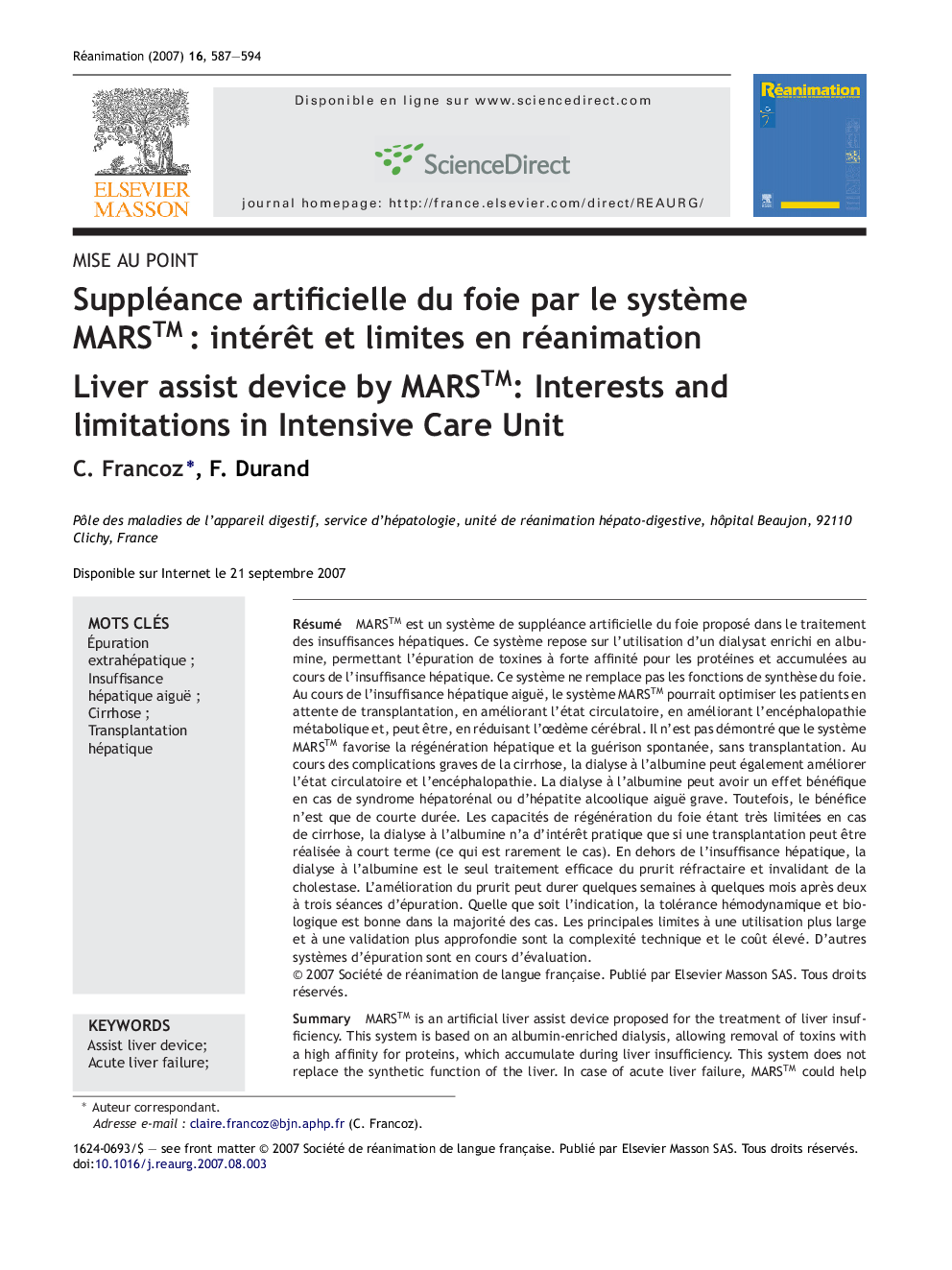| Article ID | Journal | Published Year | Pages | File Type |
|---|---|---|---|---|
| 2613840 | Réanimation | 2007 | 8 Pages |
Abstract
MARS⢠is an artificial liver assist device proposed for the treatment of liver insufficiency. This system is based on an albumin-enriched dialysis, allowing removal of toxins with a high affinity for proteins, which accumulate during liver insufficiency. This system does not replace the synthetic function of the liver. In case of acute liver failure, MARS⢠could help optimize patients awaiting for emergency transplantation by restoring hemodynamic stability, by improving metabolic encephalopathy and, possibly, by improving brain edema. There is no evidence that MARS⢠accelerates liver regeneration and increases the chance of spontaneous recovery, without the need for transplantation. In cases of severe complications of cirrhosis, albumin dialysis also allows restoration of hemodynamic stability and improves encephalopathy. Albumin dialysis can be beneficial in patients with hepatorenal syndrome and severe alcoholic hepatitis. However, beneficial effects are only transient. As regeneration capacities are markedly limited in case of cirrhosis, the benefit from albumin dialysis is only significant if transplantation can be performed in the short term (which is rarely possible). Besides liver insufficiency, albumin dialysis is the only effective option for treating refractory and invalidating pruritus of cholestasis. The beneficial effect on pruritus can be prolonged for several weeks or a few months after two or three initial sessions. Whatever the indication, hemodynamic and biological tolerance is good in most cases. The main limitations for more expanded use and more appropriate validation is technical complexity and high cost. Other systems are currently evaluated.
Keywords
Related Topics
Health Sciences
Medicine and Dentistry
Emergency Medicine
Authors
C. Francoz, F. Durand,
